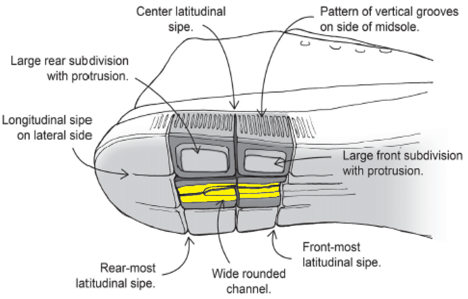
by John Marlott | Oct 18, 2018 | Final Written Decisions, Request for Reconsideration, Trial Institution
By T. Kaitlin Crowder, John Marlott, and Dave Cochran The PTAB may institute IPR proceedings only on the basis of certain prior art that is potentially invalidating under § 102 (novelty) or § 103 (obviousness). The PTAB may not institute IPR on any other...

by John Evans, Ph.D. | Jul 16, 2018 | Final Written Decisions
By: John C. Evans, Ph.D. and Aryane GaransiAchilles Heel Like utility patents, design patent validity can be challenged in inter partes review (“IPR”) proceedings. Nonetheless, the Patent Trial and Appeal Board (“PTAB” or the “Board”) tends to reach different results...

by Mike Lavine | Apr 4, 2018 | Final Written Decisions, PTAB News
By: Mike Lavine On March 21, 2018 the PTAB issued a press release announcing that two decisions denying review under 35 U.S.C. § 325(d) are designated as informative: Kayak Software Corp.v. International Business Machines Corp., CBM2016-00075, Paper 16 (PTAB Dec. 15,...

by Kenneth Luchesi | Feb 1, 2018 | Estoppel, Federal Circuit Appeal, Final Written Decisions, Preliminary Responses
By: Kenneth Luchesi In a split decision that drew separate opinions from each of the panel members, the Federal Circuit recently affirmed the PTAB’s decision to enter an adverse judgment against a patentee, even though the patentee had properly disclaimed all of the...

by Cary Miller | Dec 8, 2017 | Final Written Decisions
By Jeff Giering, Ph.D. and Cary Miller, Ph.D. On November 28, 2017, the PTAB issued a final written decision upholding the patentability of U.S. Patent No. 6,667,061 (IPR2016-01096). The ’061 patent is owned by Alkermes Pharma Ireland, Ltd. and Alkermes Controlled...

by Greg Castanias | Nov 29, 2017 | Final Written Decisions, PTAB News
By Greg Castanias, John Marlott, and Dave Cochran In a closely followed case before the U.S. Supreme Court on behalf of SAS Institute Inc., a cross-office, cross-practice Jones Day team has challenged the Patent Trial and Appeal Board’s (PTAB) practice to elect to...







